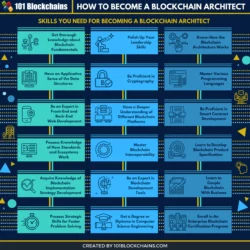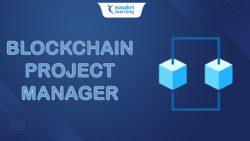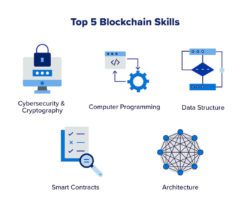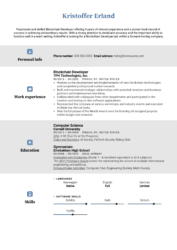Everything You Need To Know About The Career In Blockchain Engineering And Blockchain Engineer

Blockchain engineering refers to the practice of designing, developing, and implementing blockchain-based systems and solutions. It involves the use of various technologies, protocols, and algorithms to create decentralized, transparent, secure, and immutable digital ledgers known as blockchains. Blockchain engineering encompasses both the theoretical understanding of blockchain concepts and the practical application of these concepts to build real-world solutions.
At its core, blockchain engineering revolves around the idea of distributed consensus, where multiple participants in a network agree on the validity and order of transactions. This consensus is achieved through a combination of cryptographic techniques and consensus algorithms, which ensure the integrity and trustworthiness of the blockchain.
The process of blockchain engineering typically involves the following key steps:
1. Requirement Analysis: Understanding the specific needs and goals of the blockchain project. This includes identifying the target use cases, determining the desired functionalities, and defining the system requirements.
2. Design: Creating the architectural and technical design of the blockchain solution. This involves selecting the appropriate blockchain platform or framework, designing the data structure, defining the consensus mechanism, and planning the overall system architecture.
3. Development: Implementing the blockchain solution by writing the necessary code and building the required software components. This includes developing smart contracts (self-executing contracts with predefined rules), creating user interfaces, integrating external systems, and implementing any additional features or functionalities.
4. Testing and Deployment: Conducting comprehensive testing of the blockchain system to ensure its reliability, security, and performance. This includes unit testing, integration testing, and stress testing. Once the testing phase is complete, the blockchain solution is deployed to the desired network or platform.
5. Maintenance and Upgrades: Providing ongoing support, maintenance, and continuous improvement of the blockchain system. This includes monitoring the system’s performance, addressing any issues or bugs that arise, and implementing upgrades or enhancements as required.
To carry out these steps effectively, blockchain engineers need a solid understanding of cryptographic principles, distributed systems, data structures, and consensus algorithms. They should also be familiar with programming languages commonly used in blockchain development, such as Solidity (for Ethereum), Golang (for Hyperledger Fabric), or Rust (for Polkadot).
In addition to building blockchain systems from scratch, blockchain engineers may also work on integrating existing systems with blockchain technology, creating decentralized applications (dApps), developing blockchain-based smart contracts, or exploring new consensus algorithms and scalability solutions to improve the performance and efficiency of blockchain networks.
Overall, blockchain engineering plays a crucial role in the development and implementation of blockchain technology across various industries, including finance, supply chain, healthcare, and more. It combines elements of computer science, cryptography, and distributed systems to create innovative solutions that provide transparency, security, and trust in an increasingly interconnected digital world.
Roles and Responsibilities of a blockchain engineer
The roles and responsibilities of a blockchain engineer can vary depending on the specific project, organization, and level of experience. However, here are some common roles and responsibilities associated with blockchain engineering:
1. System Design and Architecture: Blockchain engineers are responsible for designing the overall system architecture of a blockchain solution. They analyze the requirements, select the appropriate blockchain platform or framework, design the data structure, define the consensus mechanism, and plan the integration with other systems.
2. Smart Contract Development: Smart contracts are self-executing contracts with predefined rules encoded on the blockchain. Blockchain engineers write and deploy smart contracts using programming languages like Solidity (for Ethereum) or other blockchain-specific languages. They ensure the contracts are secure, efficient, and align with the intended functionalities.
3. Prototyping and Development: Blockchain engineers develop the software components necessary to build blockchain solutions. This includes writing code for the blockchain network, creating user interfaces for interacting with the blockchain, integrating external systems, and implementing any additional features required by the project.
4. Cryptography and Security: As blockchain technology relies heavily on cryptography, blockchain engineers should possess a strong understanding of cryptographic principles and algorithms. They are responsible for implementing secure cryptographic techniques to protect data, authenticate users, and ensure the integrity of the blockchain.
5. Consensus Algorithm Research: Consensus algorithms determine how nodes in a blockchain network agree on the validity and order of transactions. Blockchain engineers may research and experiment with different consensus algorithms, such as Proof of Work (PoW), Proof of Stake (PoS), or Byzantine Fault Tolerance (BFT), to identify the most suitable algorithm for a particular project.
6. Testing and Debugging: Blockchain engineers conduct thorough testing of the blockchain system to identify and resolve any issues or bugs. They perform unit testing, integration testing, and stress testing to ensure the system’s reliability, security, and performance.
7. Performance Optimization: Blockchain engineers work on optimizing the performance and scalability of blockchain networks. They explore techniques such as sharding, sidechains, or off-chain solutions to enhance the system’s throughput, reduce transaction costs, and improve overall efficiency.
8. Maintenance and Upgrades: Once a blockchain solution is deployed, blockchain engineers are responsible for its ongoing maintenance, monitoring, and troubleshooting. They address any system failures, security vulnerabilities, or performance bottlenecks that may arise. They also implement upgrades or enhancements to keep the blockchain system up-to-date with evolving technology and business requirements.
9. Collaboration and Documentation: Blockchain engineers often work in cross-functional teams, collaborating with product managers, software developers, and other stakeholders. They communicate technical concepts effectively, provide guidance and support to team members, and maintain documentation of the system’s architecture, code, and processes.
10. Research and Innovation: Blockchain technology is constantly evolving, and blockchain engineers are expected to stay updated with the latest advancements, research papers, and industry trends. They explore new possibilities, evaluate emerging blockchain platforms and frameworks, and contribute to the innovation and advancement of blockchain solutions.
These are some of the key roles and responsibilities associated with blockchain engineering. However, it’s important to note that the field is dynamic, and the responsibilities can evolve as blockchain technology continues to mature and find new applications across various industries.
Also read: Top 10 Blockchain Projects You Must Know About
Skills and Qualifications needed to become a blockchain engineer
Becoming a blockchain engineer requires a combination of technical skills, knowledge, and qualifications. While specific requirements may vary depending on the organization and project, here are some essential skills and qualifications typically needed to pursue a career as a blockchain engineer:
1. Programming Languages: Proficiency in programming languages is crucial for blockchain development. Solidity is the most widely used language for developing smart contracts on Ethereum. Additionally, knowledge of other languages like Golang (for Hyperledger Fabric), Rust (for Polkadot), or JavaScript (for blockchain frameworks like Corda or Hyperledger Sawtooth) can be valuable.
2. Blockchain Platforms and Frameworks: Familiarity with popular blockchain platforms and frameworks is essential. Ethereum, Hyperledger Fabric, Corda, and Polkadot are some examples of widely used blockchain technologies. Understanding their features, architecture, and development tools is important for implementing blockchain solutions.
3. Smart Contract Development: Solid understanding of smart contract development is essential for working with blockchain technology. This includes knowledge of Solidity syntax, Ethereum Virtual Machine (EVM), smart contract lifecycle, deployment, and interaction with blockchain networks.
4. Cryptography: Strong knowledge of cryptographic principles and algorithms is vital for blockchain engineers. This includes understanding encryption, hashing, digital signatures, and cryptographic protocols used in blockchain systems.
5. Distributed Systems: Blockchain is inherently a distributed system, so understanding the principles and challenges of distributed systems is important. Familiarity with concepts like consensus algorithms, fault tolerance, peer-to-peer networks, and network protocols is beneficial.
6. Data Structures: Solid understanding of data structures is essential for efficient handling and storage of data in blockchain systems. Knowledge of Merkle trees, hash functions, linked lists, and other data structures commonly used in blockchain is necessary.
7. Blockchain Concepts and Principles: Deep knowledge of blockchain concepts and principles is fundamental. This includes understanding decentralized consensus, immutability, transaction verification, privacy, and security mechanisms employed in blockchain networks.
8. Problem-Solving and Analytical Thinking: Blockchain engineers need strong problem-solving and analytical skills to design and develop innovative solutions. They should be able to analyze complex problems, identify potential solutions, and evaluate trade-offs to make informed design decisions.
9. Testing and Debugging: Proficiency in testing and debugging blockchain systems is essential to ensure their reliability and security. Understanding unit testing, integration testing, and security auditing techniques specific to blockchain is important.
10. Continuous Learning: Blockchain technology is rapidly evolving, so a mindset of continuous learning is critical. Staying updated with the latest developments, research papers, and industry trends is necessary to adapt to emerging technologies and best practices.
Qualifications and Education:
1. Degree in Computer Science or Related Field: While not always a strict requirement, a degree in computer science or a related field provides a strong foundation in programming, algorithms, data structures, and distributed systems.
2. Blockchain Certifications: There are various blockchain certifications available that can validate your knowledge and expertise in blockchain technology. Examples include the Certified Blockchain Developer (CBD) certification by the Blockchain Training Alliance and certifications offered by blockchain platforms like Ethereum.
3. Personal Projects and Experience: Building personal projects or contributing to open-source blockchain projects can demonstrate practical experience and showcase your skills to potential employers.
4. Industry Experience: Prior experience in software development, distributed systems, cybersecurity, or related fields can be beneficial when transitioning into blockchain engineering.
It’s important to note that while having a strong technical skill set is crucial, blockchain engineers should also possess good communication skills, the ability to work in teams, and a passion for understanding and solving complex problems.
Continuously expanding your knowledge, staying updated with the latest developments, and gaining hands-on experience through practical projects are key steps to becoming a proficient blockchain engineer.
Also read: Top 4 Ways A Blockchain Developer Can Work On Scalability
Top 10 Careers in Blockchain Engineering
Blockchain technology is rapidly growing and evolving, and with it, the demand for skilled blockchain engineers. Blockchain engineers are in high demand, and they can command high salaries. If you are interested in a career in blockchain engineering, there are many different paths you can take.
Here are the top 10 careers in blockchain engineering:
- Blockchain Developer
Blockchain developers are responsible for designing, developing, and testing blockchain applications. They need to have a strong understanding of blockchain technology, as well as programming languages such as Solidity and Python. 
- Blockchain Architect
Blockchain architects are responsible for designing and overseeing the implementation of blockchain solutions. They need to have a deep understanding of blockchain technology, as well as business requirements. 
- Blockchain Consultant
Blockchain consultants advise businesses on how to implement blockchain technology. They need to have a strong understanding of blockchain technology, as well as business processes. 
- Blockchain Project Manager
Blockchain project managers oversee the development and implementation of blockchain projects. They need to have a strong understanding of blockchain technology, as well as project management skills. 
- Blockchain Security Engineer
Blockchain security engineers are responsible for securing blockchain applications and networks. They need to have a strong understanding of blockchain technology, as well as security best practices. 
- Blockchain Researcher
Blockchain researchers are responsible for developing new blockchain technologies and applications. They need to have a strong understanding of blockchain technology, as well as research skills. 
- Blockchain Educator
Blockchain educators teach others about blockchain technology. They need to have a strong understanding of blockchain technology, as well as teaching skills. 
- Blockchain Writer
Blockchain writers write about blockchain technology for a variety of audiences. They need to have a strong understanding of blockchain technology, as well as writing skills. 
- Blockchain Community Manager
Blockchain community managers build and maintain blockchain communities. They need to have a strong understanding of blockchain technology, as well as community management skills.
- Blockchain Entrepreneur
Blockchain entrepreneurs start and run blockchain businesses. They need to have a strong understanding of blockchain technology, as well as business skills.
These are just a few of the many careers available in blockchain engineering. If you are interested in a career in blockchain, there are many resources available to help you get started. You can find online courses, bootcamps, and certification programs. You can also network with other blockchain professionals and attend industry events.
The future of blockchain is bright, and there is a growing demand for skilled blockchain engineers. If you are looking for a challenging and rewarding career, blockchain engineering is a great option.
Here are some additional tips for pursuing a career in blockchain engineering:
- Get certified. There are a number of blockchain certifications available, which can help you demonstrate your skills to potential employers.
- Network with other blockchain professionals. Attend industry events, join online forums, and connect with people on LinkedIn.
- Contribute to open source projects. This is a great way to gain experience and build your portfolio.
- Start your own blockchain project. This is a great way to showcase your skills and gain attention from potential employers.
Future of blockchain engineering
The future of blockchain engineering holds tremendous potential as the technology continues to evolve and find applications across various industries. Here are some key aspects that highlight the future prospects of blockchain engineering:
1. Scalability and Performance Improvements: Scalability has been a persistent challenge for blockchain networks, particularly in terms of handling a high volume of transactions. In the future, blockchain engineers will focus on developing and implementing scalability solutions such as sharding, layer-two protocols, and advanced consensus algorithms to enhance throughput and improve the overall performance of blockchain networks.
2. Interoperability and Integration: As blockchain adoption increases, there is a growing need for interoperability among different blockchain networks and existing systems. Blockchain engineers will play a vital role in developing standards, protocols, and tools to facilitate seamless interoperability, enabling data and asset exchange between disparate blockchain platforms and traditional systems.
3. Privacy and Confidentiality Enhancements: Privacy has been a significant concern in public blockchain networks where transaction data is visible to all participants. Future blockchain engineering efforts will focus on integrating advanced privacy-enhancing techniques such as zero-knowledge proofs, secure multiparty computation, and homomorphic encryption to ensure confidentiality while maintaining the transparency and integrity of the blockchain.
4. Governance and Regulation: As blockchain technology becomes more widespread, there will be an increased emphasis on establishing robust governance frameworks and regulatory mechanisms. Blockchain engineers will contribute to designing and implementing governance models, consensus mechanisms, and compliance features that adhere to legal and regulatory requirements while maintaining decentralization and trust in blockchain networks.
5. Integration with Emerging Technologies: Blockchain engineering will intersect with other emerging technologies such as artificial intelligence (AI), the Internet of Things (IoT), and edge computing. Blockchain engineers will explore how blockchain can enhance data integrity, security, and interoperability in AI and IoT applications. They will also work on integrating blockchain with edge devices and enabling decentralized and trusted interactions among them.
6. Industry-Specific Solutions: Blockchain engineering will continue to revolutionize various industries by developing industry-specific solutions. Sectors like finance, supply chain, healthcare, energy, and voting systems can benefit from blockchain’s transparency, immutability, and traceability. Blockchain engineers will collaborate with domain experts to design and implement tailored blockchain solutions that address specific industry challenges.
7. Tokenization and Digital Assets: Blockchain has unlocked new possibilities for tokenization, enabling the representation of real-world assets and digital assets on the blockchain. Blockchain engineers will contribute to the development of tokenization standards, infrastructure, and decentralized exchanges, facilitating the seamless transfer and trading of digital assets across different blockchain networks.
8. Environmental Sustainability: Blockchain’s energy consumption has been a topic of concern. In the future, blockchain engineers will work on developing and implementing energy-efficient consensus algorithms, exploring alternative consensus mechanisms, and adopting green blockchain practices to reduce the environmental impact of blockchain technology.
9. Education and Skill Development: The demand for skilled blockchain engineers will continue to grow. Educational institutions, online courses, and certifications will play a vital role in equipping individuals with the necessary skills and knowledge to pursue careers in blockchain engineering. Continuous learning and upskilling will be crucial for blockchain engineers to stay updated with evolving technologies and industry trends.
10. Adoption in Developing Countries: Blockchain technology has the potential to address socioeconomic challenges in developing countries by providing transparent, efficient, and inclusive systems for financial services, identity management, supply chain management, and more. Blockchain engineers will contribute to the adoption and customization of blockchain solutions to meet the specific needs and requirements of these regions.
Overall, the future of blockchain engineering is promising, with ongoing advancements and innovations shaping the technology’s trajectory. Blockchain engineers will play a vital role in driving the adoption, scalability, security, and interoperability of blockchain solutions across industries, contributing to a more decentralized, transparent, and efficient digital ecosystem.
How to Become a Blockchain Engineer?
Becoming a blockchain engineer requires a combination of technical skills, knowledge, and practical experience. If you’re interested in pursuing a career in blockchain engineering, here are the steps you can take to get started:
1. Gain a Strong Foundation in Computer Science: A solid understanding of computer science fundamentals is essential. Consider pursuing a degree in computer science, software engineering, or a related field. Courses in algorithms, data structures, cryptography, distributed systems, and programming languages will provide a strong foundation for blockchain engineering.
2. Learn Programming Languages: Familiarize yourself with programming languages commonly used in blockchain development. Solidity is the most popular language for writing smart contracts on Ethereum, so mastering Solidity is crucial. Additionally, learning other languages like Golang (for Hyperledger Fabric), Rust (for Polkadot), or JavaScript (for blockchain frameworks like Corda or Hyperledger Sawtooth) can broaden your skill set.
3. Understand Blockchain Concepts and Principles: Develop a deep understanding of blockchain technology, including decentralized consensus, cryptography, smart contracts, and distributed ledger systems. Study the workings of popular blockchain platforms such as Ethereum, Hyperledger Fabric, Corda, or Polkadot, and explore real-world use cases and applications of blockchain technology.
4. Explore Open-Source Projects: Engage with open-source blockchain projects to gain practical experience and contribute to the blockchain community. GitHub is a valuable resource to discover and collaborate on blockchain-related projects. By actively participating in open-source projects, you can learn from experienced developers, enhance your skills, and showcase your work to potential employers.
5. Learn Smart Contract Development: Smart contracts are an integral part of blockchain engineering. Learn how to write smart contracts using Solidity or other blockchain-specific languages. Understand the lifecycle of smart contracts, security best practices, and the process of deploying smart contracts to blockchain networks.
6. Participate in Hackathons and Competitions: Engaging in hackathons and coding competitions focused on blockchain can provide valuable hands-on experience and networking opportunities. These events challenge you to solve real-world problems and collaborate with other developers, enhancing your skills and exposing you to the blockchain ecosystem.
7. Explore Blockchain Development Platforms and Tools: Familiarize yourself with blockchain development platforms and tools that simplify the process of building blockchain applications. Platforms like Truffle, Remix, or Ganache provide development environments, testing frameworks, and deployment tools for blockchain projects. Learn how to utilize these platforms to streamline your development workflow.
8. Pursue Blockchain Certifications: Consider obtaining blockchain certifications to validate your knowledge and expertise. Certifications like Certified Blockchain Developer (CBD) by the Blockchain Training Alliance or platform-specific certifications can demonstrate your proficiency in blockchain engineering and increase your credibility in the job market.
9. Stay Updated and Engage in Continuous Learning: Blockchain technology is constantly evolving, so it’s crucial to stay updated with the latest trends, research, and advancements. Follow industry news, attend conferences, join online communities, and engage in discussions to stay at the forefront of blockchain engineering. Continuous learning and a curious mindset are key to thriving in this rapidly evolving field.
10. Build a Portfolio of Projects: Create a portfolio of blockchain projects to showcase your skills and experience to potential employers. Start with small projects and gradually work on more complex applications. Document your projects, including code samples, documentation, and descriptions of the problems you solved and the technologies you used. A portfolio demonstrates your practical abilities and can help you stand out in the competitive job market.
11. Networking and Collaboration: Engage with the blockchain community by attending meetups, conferences, and online forums. Networking with professionals in the field can provide valuable insights, mentorship opportunities, and potential job prospects. Collaborating on blockchain projects with others can also broaden your knowledge and skills.
12. Seek Job Opportunities and Internships: Look
for job openings or internship opportunities in blockchain development. Start by exploring positions at blockchain startups, research institutions, or established companies venturing into blockchain technology. Showcase your skills, experience, and portfolio during job interviews to demonstrate your competence and passion for blockchain engineering.
Remember, becoming a blockchain engineer is a journey that requires dedication, continuous learning, and hands-on experience. Embrace the challenges, be open to learning new technologies, and stay persistent in pursuing your goals. With time and effort, you can build a successful career in blockchain engineering.
I learned so much about blockchain technology in the last 6 years that I decided to pursue a career in the space rather than with my Mechanical Engineering degree.
— Yazan Al Kharouf (@YazanXBT) April 24, 2023
I’m blessed to now have over 2,500 followers that want to learn about what’s most important in this space and that…




























































